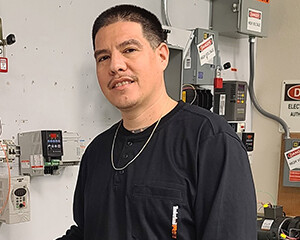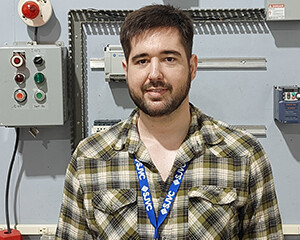How to become an Industrial Machinery Mechanic
 Does a hands-on career where you install and repair machinery appeal to you? Then a career as an industrial machinery mechanic might be right for you. We’ve created this guide to help answer some common questions about this career, including:
Does a hands-on career where you install and repair machinery appeal to you? Then a career as an industrial machinery mechanic might be right for you. We’ve created this guide to help answer some common questions about this career, including:
- What Industrial Machinery Mechanics do on the job
- Pros and cons to a career as an Industrial Machinery Mechanic
- Qualities that make someone a good fit for an Industrial Machinery Mechanic career
- How to get started on this career path
What does an Industrial Machinery Mechanic do?
Industrial machinery mechanics, according to the Bureau of Labor Statistics (BLS), are tasked with repairing and maintaining factory equipment and other industrial machinery, such as packaging equipment, conveying systems and production machinery.
According to Sokanu, a career matching platform, industrial machinery mechanics typically do the following on the job:
- Read technical manuals to understand controls and equipment
- Disassemble equipment and machinery when a problem occurs
- Replace and/or repair malfunctioning or broken components
- Perform tests to ensure that machines are operating smoothly
- Calibrate and adjust machinery and equipment
Why should I become an Industrial Machinery Mechanic?
If you’re looking for a career that doesn’t put you at a desk for your workdays and is all about working with your hands, industrial machinery maintenance could be a great fit. Plus, a career as an industrial machinery mechanic has the following positives:
- Steady employment growth: The BLS expects employment of industrial machinery mechanics to grow 7% from 2016 to 2026, about as fast as the average growth rate for all occupations. California has the second highest level of employment for industrial machinery mechanics in the U.S., falling behind only Texas. Due to factories and plants using more sophisticated manufacturing machinery (automated or computer-controlled), the BLS expects this to raise demand for mechanics to keep machines working correctly.
- Decent pay: Industrial machinery mechanics had an annual mean wage of $53,110 in May 2017, per the BLS. Industrial machinery mechanics in California reported having an annual mean wage of $57,880.
One thing to note: Industrial machinery mechanics do have higher rates of injuries and illnesses than the national average due to the nature of the job. It’s important for workers to use protective equipment and follow safety protocols to avoid potential injuries.
Where do Industrial Machinery Mechanics work?
Manufacturing facilities are the largest employer of industrial machinery mechanics, according to the BLS. Common other employers are in wholesale trade and construction.
Is a career as an Industrial Machinery Mechanic right for me?
There are a few important qualities that industrial machinery mechanics should possess:
- Manual dexterity: Having steady hands and good hand-eye coordination when handling small parts are very important qualities for industrial machinery mechanics to have.
- Mechanical skills: Being able to use technical manuals and sophisticated diagnostic equipment to find out why machines aren’t operating are important skills that industrial machinery mechanics need to have as well as being able to reassemble large, complex machines after completing repairs.
- Troubleshooting skills: Industrial machinery mechanics must also be able to observe, diagnose and fix issues that machines might be having.
How do I start my training to become an Industrial Machinery Mechanic?
Industrial machinery mechanics usually receive more than a year of on-the-job training and, according to the BLS, employers may hire professional trainers or representatives of equipment manufacturers to provide this training.
However, with more and more employers preferring to hire people who already have some training in industrial technology, going to a technical school is another route you can take to begin your training.
SJVC offers an Industrial Maintenance Technology program designed to provide fundamental, hands-on training on industrial systems and equipment. Students study and master the basic principles, applications, concepts and functions of hydraulic systems, bearing and seal types, and power transmission components.
Students can earn a Certificate of Completion in approximately 7 months, or an Associate of Science Degree in approximately 14 months. Request more information now or call 866-544-7898 to speak with an admissions advisor about SJVC’s industrial machinery mechanic program.
Learn More About A Career As A Maintenance Technician
Learn more about industrial maintenance training, jobs, salary, and other important facts.
You might also like
More stories about
Request Information
All fields using an asterik (*) are required.


